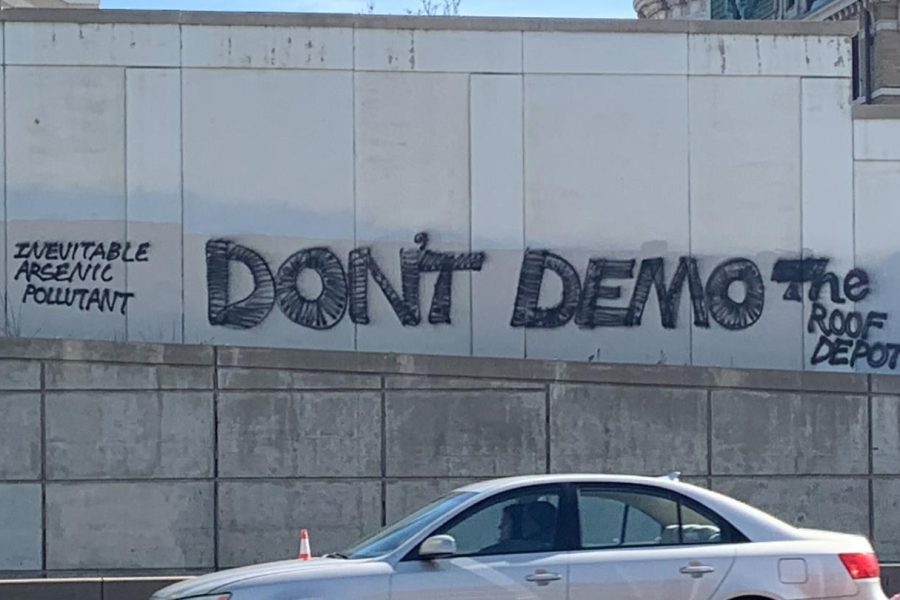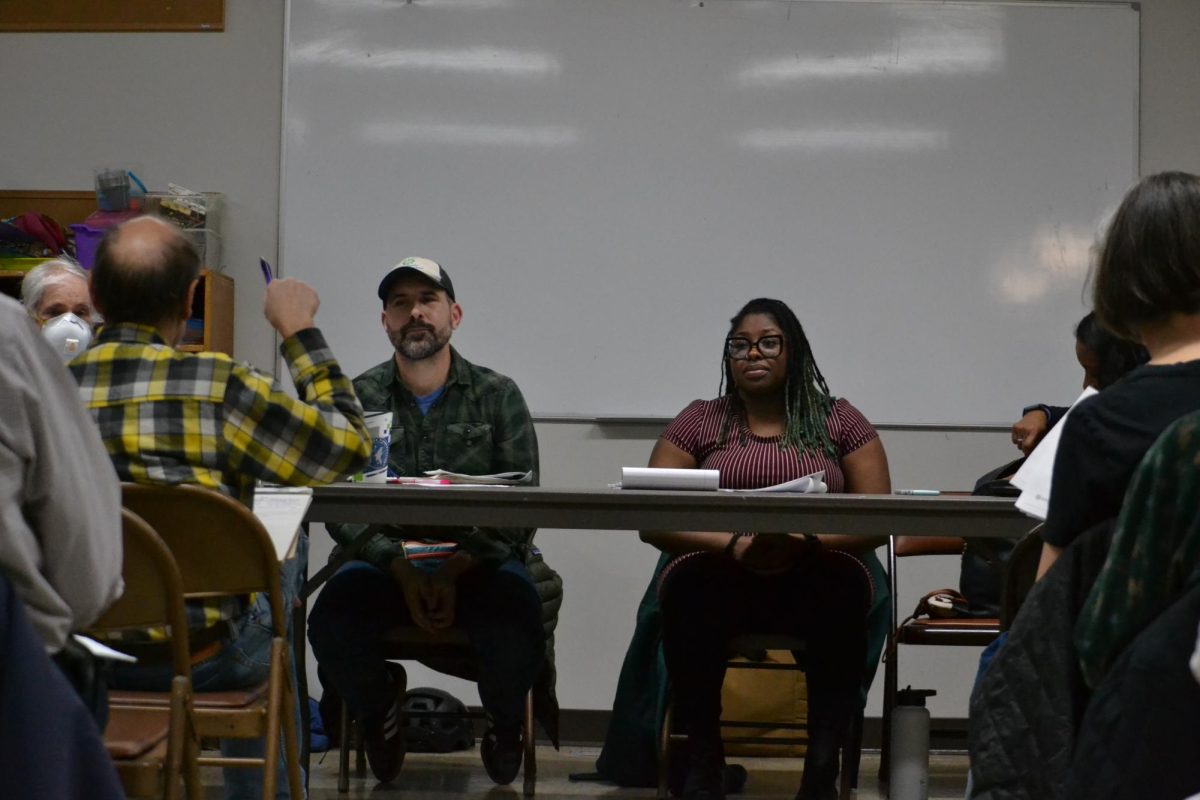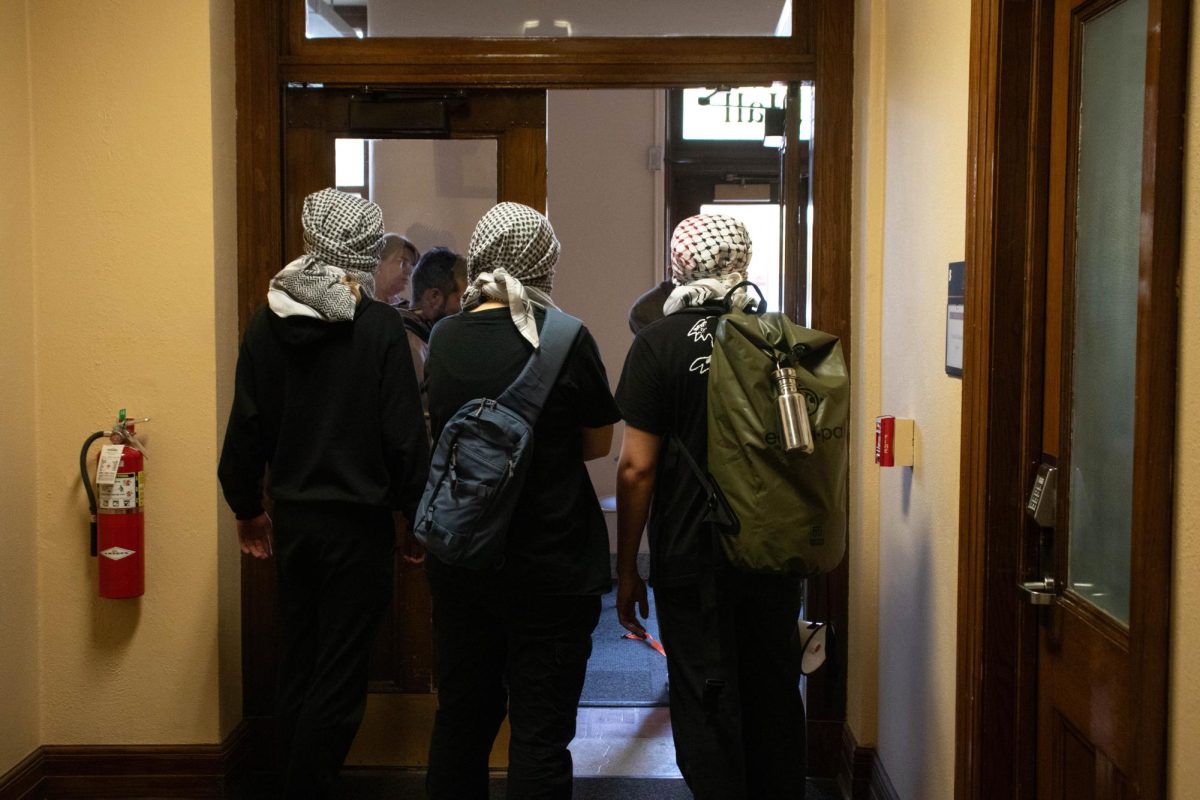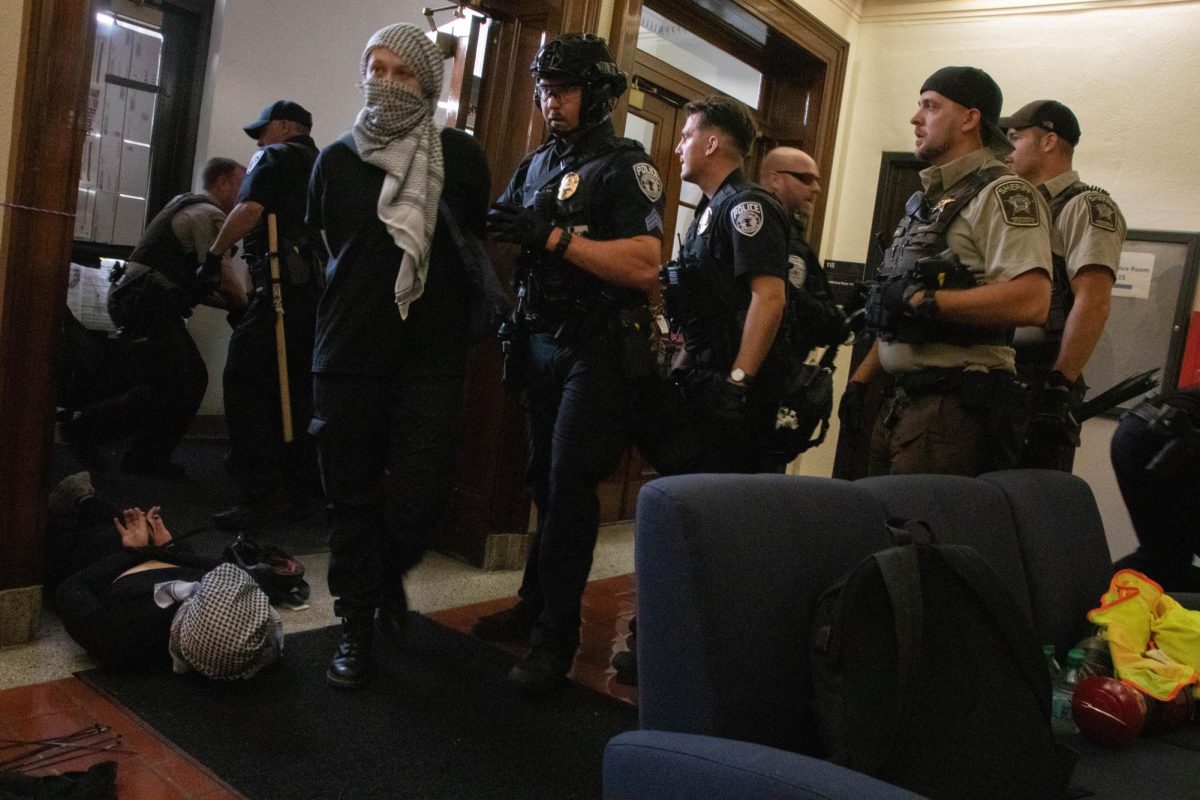Five months after the Minneapolis City Council voted to seek proposals to demolish the former Roof Depot building in East Phillips, residents from the neighborhood are continuing to fight to protect the site.
The council approved a contract to demolish the building in January despite pushback from residents concerned about the project’s environmental impacts. Following the vote, continued protests from activists and a court appeal in February have led the project to be temporarily paused.
The building sits on top of high levels of toxic arsenic after a former manufacturing plant leaked chemicals and contaminated East Phillips’ soil for decades. As a result of the neighborhood’s pollution, East Phillips residents suffer from health problems such as asthma, according to a 2021 City Council Analysis.
The site has become a battleground between the city, which aims to demolish the Roof Depot building to create a consolidated public works facility, and residents concerned the building’s demolition would release more arsenic and cause further environmental harm.
City Council votes for demolition
Protestors filled the council chambers on Jan. 26 with signs reading “CULTURAL GENOCIDE STOPS HERE,” “RACE EQUITY STARTS HERE” and “VOTE NO.”
As the council prepared to vote on whether to demolish the Roof Depot building, activists played drums and chanted, “Urban farm not toxic harm.”
Ward 9 Council Member Jason Chavez, who represents East Phillips and its surrounding neighborhoods, said he opposed demolition during the meeting because he is “protective” of East Phillips, which is one of Minneapolis’ most diverse neighborhoods.
“For decades, my East Phillips neighbors have been fighting pollution in our backyard,” Chavez said. “Community members knew that children could not tolerate more pollution moving into our neighborhood.”
In a 7-6 vote, the council approved a $1.6 million contract to demolish the building, as onlookers chanted “shame.”
Chavez helped co-author a plan to mitigate the project’s environmental impacts with measures including allocating three of the site’s 7.6 acres for community use, planting trees and prioritizing the use of electric vehicles near the site. The council unanimously passed the motion.
Other council members who supported the Roof Depot building’s demolition cited Chavez’s plan as an effective compromise to protect East Phillips residents.
Despite the city’s plan to reduce the project’s environmental harm, Ward 2 Council Member Robin Wonsley, who voted against demolition, said the council’s decision was “absolutely devastating.”
“You had hundreds of residents at City Hall with the simple demand of, ‘Don’t poison us,’” Wonsley said. “It was an emotionally wrecking meeting to just hear the community cry out one last time.”
Throughout Minneapolis, people have voiced concerns about the project’s environmental impact. The City Council missed an opportunity to listen to residents, according to Wonsley.
Wonsley said although the council has made “symbolic gestures” toward supporting climate justice and communities of color, it votes to undermine those gestures and instead sends “thoughts and prayers.”
“[A] segment of council members feel good they got a compromise plan, like we washed our hands on this,” Wonsley said. “It just shows how disconnected [the council] is from working-class people and their everyday realities.”
Aftermath and occupation
Nicole Perez worked in East Phillips studying air pollution and was no stranger to public speaking before a drug addiction made communicating challenging. Before the vote, the mother of five scolded the council for nearly three minutes to protect the family and community that helped her recover.
Since the meeting, Perez has become a leading activist in East Phillips, helping residents organize protests and confronting Mayor Jacob Frey on the city’s plans in a video spread on social media.
“I went to the City Council meeting, and that’s where I had that first outburst trying to get my story across to the council members,” Perez said. “I realized all of our kids are sick. Our elders are sick. It became something where I wouldn’t stop.”
After her granddaughter was diagnosed with asthma, Perez said she began to notice seemingly everyone in her community knew someone with asthma. According to Perez, more people began to organize as they learned their neighbors suffered health problems as a result of pollution.
Protests culminated in neighborhood activists trespassing the Roof Depot site with tents and ceremonial fires on Feb. 21, less than a week before the building was scheduled to be demolished.
Hours into the occupation, dozens of armed police officers began clearing the site, putting out fires and dumping medicines used in the ceremonies, Perez said. Perez was one of eight protestors arrested as a result of the occupation.
Before she was arrested, Perez said one officer pulled her aside and became emotional, saying police did not want to break up the protest but simply “had jobs to do.”
“The site is not safe for individuals to congregate at and anyone on the site was trespassing,” city spokesperson Sarah McKenzie wrote in a Feb. 27 statement to the Minnesota Daily addressing the occupation.
Demolition of the building is “non-negotiable” due to its deterioration from being left vacant, McKenzie said in the statement.
However, Perez compared the city’s plans to the U.S. government taking land from Indigenous tribes and expecting them to be content with reservations as a compromise.
“If we don’t take a stand to us being treated like this now, we’re always going to be treated like this,” Perez said. “It’s not fair — our people have been through so much.”
An ongoing fight
For roughly nine years, the East Phillips Neighborhood Institute (EPNI) has fought the city’s development plans and instead brought forward plans to convert the Roof Depot building into an indoor urban farm.
EPNI sued Minneapolis in 2020 to conduct further review of its demolition plans. The lawsuit claimed the city violated state law by producing insufficient assessments on the environmental impacts of the project and polluting East Phillips.
Joe Vital, EPNI organizer and former East Phillips resident, said the lawsuit’s results will determine how EPNI continues to fight to keep the Roof Depot building standing.
“EPNI right now is standing and observing the courts to see what happens there,” Vital said. “This has turned into a movement.”
The Minnesota Court of Appeals ruled on Feb. 6 that Minneapolis had thoroughly assessed the project’s environmental impacts after the city finalized demolition plans in August 2022, which were approved by the Minnesota Pollution Control Agency and the Minnesota Department of Agriculture.
Less than two weeks later, a Hennepin County judge rejected the EPNI’s request to delay demolition until the trial concludes, citing “insufficient evidence” that the project would pollute East Phillips. EPNI appealed the ruling and requested a temporary restraining order until the appeal concludes, which was approved on Feb. 24.
As a result, Minneapolis cannot move forward with demolition plans, and the Roof Depot building remains standing nearly a month after it was scheduled to be torn down.
Although it is unknown when the appellate court will make a decision on the case, Vital said the restraining order could protect the Roof Depot building for months.
“Fighting for community control of the site, that’s not going anywhere,” Vital said.




















